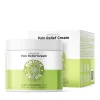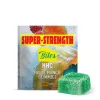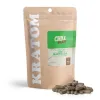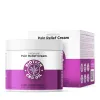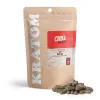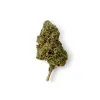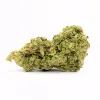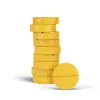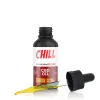With a growing cannabinoid market, it’s hard to keep up with the latest developments in hemp. You’ve already gotten delta 9’s old-school classic buzz, you’ve relaxed into soothing wonder with delta 8, and you’ve blasted through your to-do list with delta 10. But what’s next in the sequence? That’s right. Delta 11.
Although you may have never heard of it before, delta 11 was actually discovered in the 1970s, but the compound dropped off the map for decades. Until now. Discover its effects, benefits, and how it compares to all your favorite cannabinoids!
What Is Delta 11?
Delta-11-tetrahydrocannabinol, or delta 11 THC, is a rare natural compound in the cannabis plants only found in trace amounts. The first mention of delta 11 in a scholarly environment occurred in 1974, when a paper discussed the social impacts of cannabis use. The metabolism of this rare cannabinoid was also investigated in a 1990 animal study. No research on the compound has been published since.
With research on the compound seemingly paused, what else do we know about delta 11? The compound is thought to be nearly three times stronger than THC, the main psychoactive ingredient in cannabis. This statement alone is already enough to inspire cannabis users to seek out a little delta 11 on their own, but anecdotal evidence also reports another intense effect associated with delta 11: euphoria.
According to user accounts, delta 11 provides a euphoric effect unlike any other “delta” cannabinoid. Apart from that, we don’t have any more scientific evidence indicating any sort of benefit of effects associated with delta 11. The cannabinoid has not been the subject of any significant studies apart from the ones mentioned above that took place in the late 20th century.
What we do know overall, however, is that delta 11:
- Has powerful relaxation properties
- Has strong cerebral and body effects
- Elevates mood
- Relieves anxiety and stress
- Provides intense euphoria
- Has long-lasting effects

How Strong is Delta 11?
As previously mentioned, delta 11 is thought to be around three times stronger than delta 9.
Does Delta 11 Show Up on A Drug Test?
Delta 11 hasn't been extensively researched yet, so it's hard to say whether the compound will trigger a drug test for sure. As a rule of thumb, however, if a cannabinoid has the word THC in its name, it puts you at risk of failing a drug test.
A standard drug test seeks to determine whether a person has used cannabis or not by determining whether the person has metabolized THC-COOH, an enzyme that metabolizes all THC-based cannabinoids. In addition, delta 11 is more potent than delta 9, so there is also reason to believe it has a higher chance of failing a drug test.
How Long Does Delta 11 Stay in Your System?
It is not known how long delta 11 stays in the human body. Even during the animal trials carried out in the 1990s, “the ratio of the metabolites varied considerably between the species.” We do know, however, from common cannabis knowledge, that the compound lasts longer in the body the more it’s used, both in frequency and amount.
This means that delta 11 is more likely to linger in the body for longer when used frequently and in higher amounts than when used rarely or infrequently and in lower doses.
How is Delta 11 Made?
Most cannabinoid enthusiasts are familiar with the process of making new compounds by now. As with similar cannabinoids, delta 8 and delta 10, delta 11 is a naturally occurring compound. Nevertheless, as with the majority of products available in recent years, D11 can only be found in tiny concentrations in hemp plants. Manufacturers cannot extract it commercially.
In spite of delta 11's rarity, retailers can produce it in large quantities for mass marketing by using a process known as cannabinoid conversion. The compound appears synthetic at first glance, but chemists use natural cannabinoids, such as CBD, and put them through an organic process — a process that naturally occurs in hemp plants but can now be replicated in the lab — to make delta 11. At its core, delta 11 is made in the same ways it is made in nature, except in a controlled lab environment where scientists are able to manipulate the conditions surrounding its creation.

Is Delta 11 Safe?
Delta 11 hasn’t been studied to an extensive enough amount for a sound scientific safety profile. That said, due to its proximity to other cannabinoids like delta 9, it is thought to be generally safe. The compound, after all, comes from hemp, one of the safest plants on the planet. No one has ever developed illness, injury, or died from any hemp-derived product, including delta 11.
That said, however, all cannabis compounds do have some adverse side effects, especially when consumed in larger amounts. These effects include:
- Dry eyes
- Dry mouth
- Light headedness
- Dizziness
- Headache
- Fatigue
- Sleepiness
- Lack of coordination
Because delta 11 is so much stronger than delta 9, it’s always best to dose the compound low and build your way up to a high that’s right for you. Dry eyes and a cottonmouth can be easily relieved, but the same cannot be said for some of the other side effects on this list. If you take too much delta 11 and feel dizzy or get a headache, all you’ll have left to do is ride out the high. Remember, you can always take more, but once you take too much, there’ll be nothing left to do but hope the negative effects wear off quickly.
Is Delta 11 Legal?
The cannabis landscape in the United States changed almost overnight after Congress passed the Farm Bill in 2018, legalizing hemp and all of its derivative compounds. Among entrepreneurs in the CBD space, cannabidiol and other non-psychoactive compounds such as CBN and CBG were considered the next big thing. When hemp became legal, CBD faded away in favor of high-end products. Delta 8, delta 10, HHC, THCH, THCP, and others emerged. Why?
Because they became legal.
Although it is legal to buy, sell, and consume hemp derivatives with less than 0.3% THC, several states have passed laws banning psychoactive compounds produced from hemp. Delta 11 is also federally legal, as it complies with the Farm Bill. Delta 11 has not been explicitly mentioned in any legislation, but it might fall under blanket or analog laws in the following states, so consumers should be cautious:
- Alaska
- Arizona
- Arkansas
- Colorado
- Delaware
- Idaho
- Iowa
- Mississippi
- Montana
- New York
- North Dakota
- Rhode Island
- Vermont
- Utah
- Washington
President Trump signs Farm Bill legalizing hemp
Delta 11 Compared to Different Popular Cannabinoids
With so many cannabinoids on the market today, it may be getting a little hard to keep up on which one is best fit for your needs. Although delta 11 was first scientifically recognized in the 1970s, it hasn’t gotten nearly as much attention as some of its siblings, including delta 8, delta 9, delta 10, and CBD. So, how does delta 11 compare to this popular group of compounds?
Delta 11 vs Delta 9
Delta 9, also known as just THC, is the main psychoactive compound in cannabis. This is the cannabinoid people refer to when talking about their experiences with cannabis. Compared to delta 9, delta 11 is thought to be around three times stronger, but not quite up there with more potent cannabinoids like THCP.
Delta 9’s effects include:
- Insomnia relief
- Appetite stimulation
- Anxiety management
- Anti-inflammatory properties
- Analgesic properties
- Relaxation
- Euphoria
Delta 11 vs Delta 8
Delta 8 is around half as strong as delta 9, making it much weaker than delta 11 THC. The compound is known for being a mild, subtle cannabinoid that will leave you feeling relaxed and soothed. In other words, delta 8 acts like an indica strain—unwinding, relaxing, and sedating. Additionally, delta 8 has been found to have less severe and frequent adverse effects like paranoia and anxiety than delta 9.
Its main effects include:
- Relaxation
- Pain relief
- Appetite stimulation
- Better sleep
- Anxiety relief
- Digestive support
Delta 11 vs Delta 10
Like delta 8 acts like an indica, delta 10 resembles sativa strains. It’s an energizing, focusing, and brain-activating psychoactive cannabinoid that will put you to work on turbo and have you powering through your to-do list. That said, delta 10 has the weakest psychoactive potency between delta 8, delta 9, delta 10, and delta 11.
It is known for many properties, including:
- Stress relief
- Relaxation
- Uplifting properties
- Euphoria
- Increased focus and creativity
- Energy boosts
Delta 11 vs CBD
CBD is a non-psychoactive cannabinoid famous for its plethora of wellness benefits. Obviously, the main difference between CBD and delta 11 is that CBD won't get you high, whereas delta 11 certainly will cause a heavy buzz.
CBD’s main benefits include:
- Anti-stress
- Muscle relaxant
- Anti-nausea
- Sleep regulation
- Analgesic
- Inflammation relief
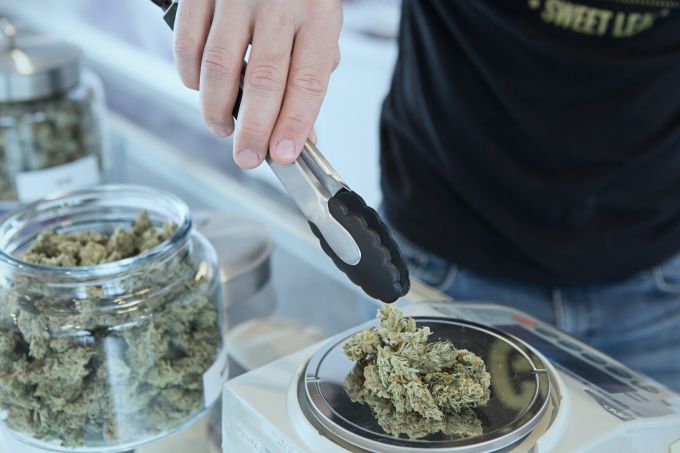
Final Thoughts
There’s nothing better than a compound that gets you high, except a compound that gets you even higher! With delta 11, you can get a bigger bang for your buck and a stronger high for your mind. Although research on the compound remains in its infancy, we know it’s safe, we know it’s much more potent than delta 9, and we know it makes for an insanely good time!


